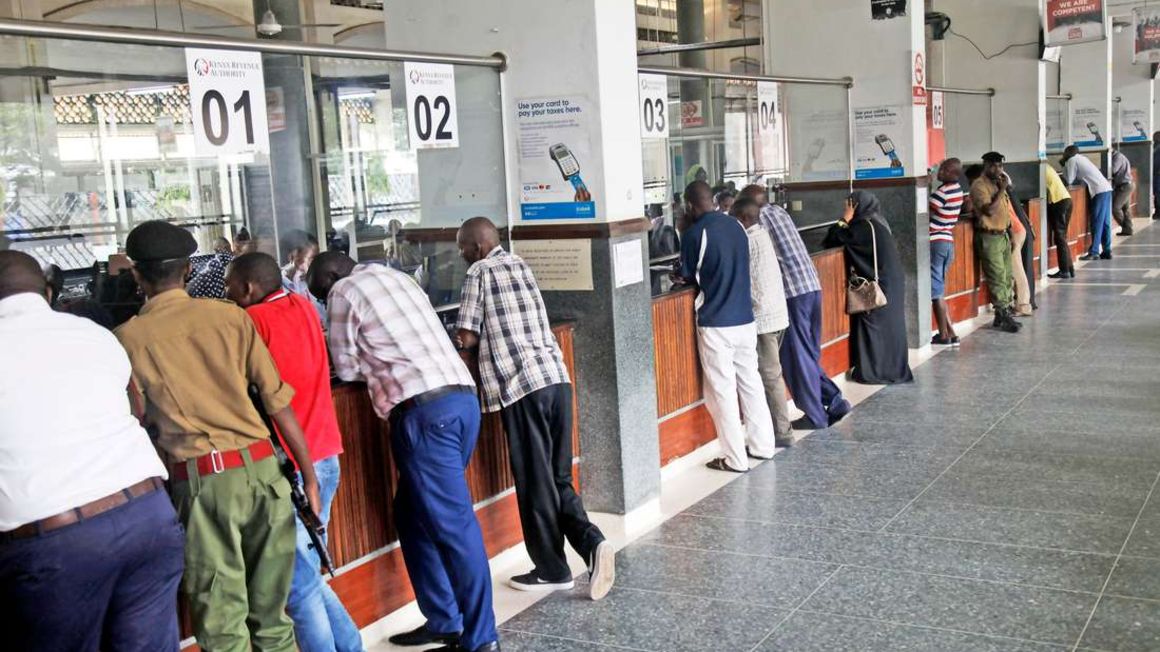Taxpayers at KRA offices in Mombasa. FILE PHOTO | NMG The Kenya Revenue Authority (KRA) has deactivated more than 66,000 accounts of Value Added Tax (VAT) defaulters as it stepped up its crackdown on evaders.
In a statement on Tuesday, the taxman said those affected are mainly Personal Identification Numbers (PINs) of individuals and businesses that have VAT obligations, but who perennially fail to file their monthly returns or persistently file nil returns.
“The VAT obligations of 66,269 taxpayers will be deregistered or cancelled effective June 10, 2021,” Rispah Simiyu, the KRA’s commissioner in charge of domestic taxes, said in a statement.
VAT is a consumption tax imposed whenever a value is added on applicable goods and services at each stage of the supply chain from production to consumption. It is levied on the use of taxable products and services supplied or imported into Kenya. The tax is collected by registered persons at designated points in the supply chain and remitted to the KRA.
The taxman had on May 5, 2021 issued a notice to the taxpayers to file their returns by June 3 or have their PINs deregistered as part of a wider plan to smoke out tax cheats. The taxman has been pursuing businesses and individual taxpayers, mostly high-net-worth individuals that owe it nearly Sh250 billion.
The drastic move by the taxman means those affected by the delisting are effectively cut off from making critical transactions that require proof of active registration as a taxpayer, with serious consequences to their businesses.
The transactions that require proof of an active PIN certificate include registration of land titles, approval of development plans, registration, transfer, and licensing of motor vehicles, and registration of business names and companies.
Others are underwriting insurance policies, customs clearing and forwarding, payment of deposits for power connections, supplying goods and services to the State, as well as opening accounts with financial institutions.
“Please be advised that all the taxpayers whose VAT obligations will be deregistered/cancelled shall be relieved of the duty to charge VAT on their supplies and accordingly, any input VAT claimed from supplies made by the deregistered taxpayers will not be allowed,” Mrs Simiyu said.
“However, the deregistered taxpayers will remain liable for any acts done or omitted while they were registered for VAT obligation,” she added.
The VAT Act 2013 and the Tax Procedures Act of 2015 empower the KRA to deactivate the PINs, issue travel bans on suspected tax cheats, collect […]
